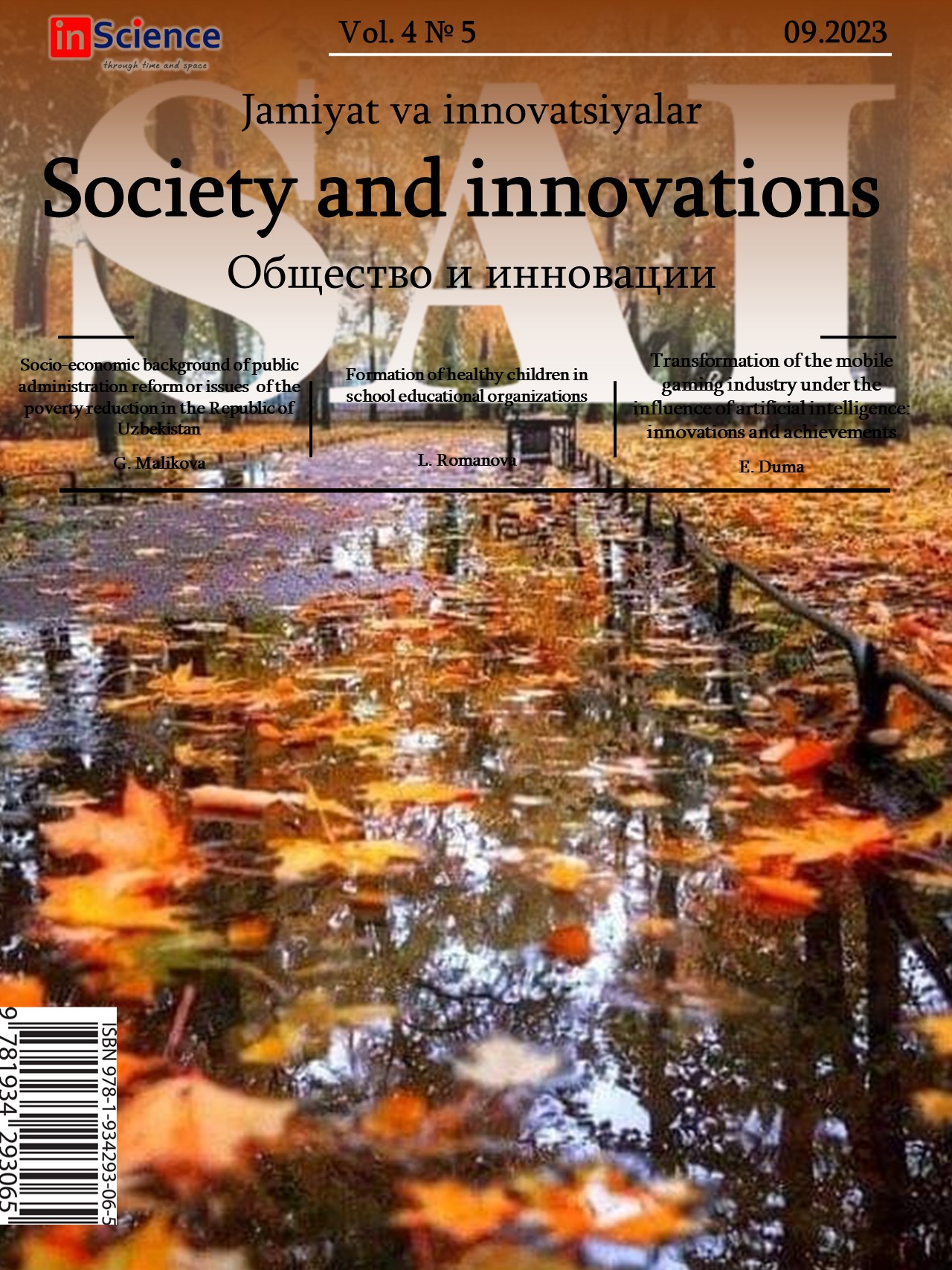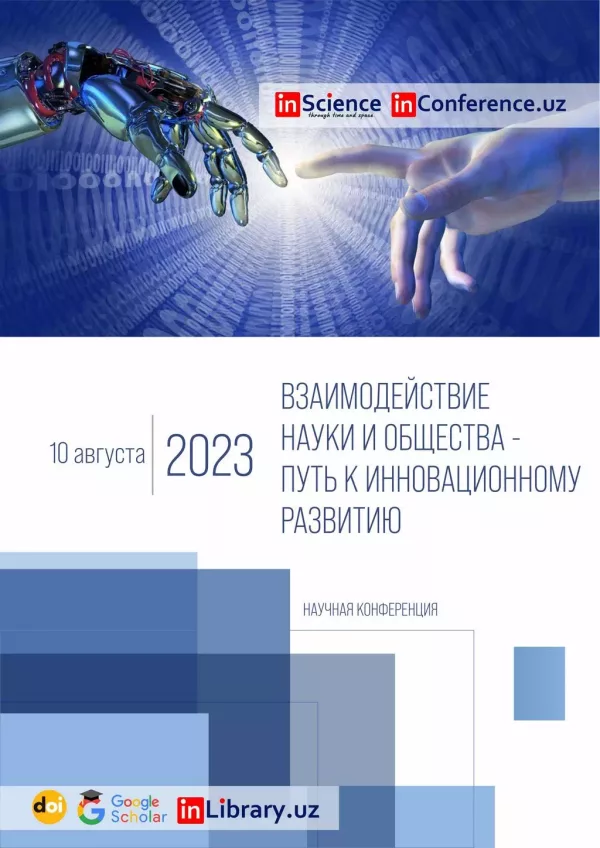DOI
https://doi.org/10.47689/2181-1415-vol4-iss5-pp66-71Keywords
motivation / learning path / evaluation / learning styles / scaffolded learningAbstract
This article explores the concept of learner autonomy and its importance in education. Learner autonomy involves actively participating in their learning process, making decisions, and taking responsibility for their progress. It encourages independence, critical thinking, and a love for learning. The characteristics of learner autonomy include self-direction, self-regulation, and responsibility. Learner autonomy is crucial in today's rapidly changing world as it fosters skills such as problem-solving and creativity, prepares individuals for the digital age, and promotes lifelong learning. By nurturing learner autonomy, educators can empower individuals for lifelong success.
Downloads
References
Rafieva, B. R. Teaching Professional Disciplines By Means of a Foreign Language in Higher Education. Spanish Journal of Innovation and Integrity, 7, 302-304.
Obloberdiyevna, D. S., & Rustamovna, R. B. (2023). The Main Criteria of Autonomy Approach in Teaching English for Students of Economics. Best Journal of Innovation in Science, Research and Development, 2(2), 125-130.
Rustamovna, R. B., & Obloberdiyevna, D. S. (2023). Motivation as a Determining Factor in Promoting Student Independence. Best Journal of Innovation in Science, Research and Development, 2(2), 140-144.
Rustamovna, R. B., & Obloberdiyevna, D. S. (2023). ROLE OF THE TEACHER AND STUDENT IN MODERN DISTANCE EDUCATION. ARXITEKTURA, MUHANDISLIK VA ZAMONAVIY TEXNOLOGIYALAR JURNALI, 2 (1), 14–17.
Rustamovna, R. B. (2022). TWO MAIN PHASES IN IDENTIFYING THE CORRECT STRUCTURE OF THE LESSON CONTENT IN VIRTUAL CLASSROOM. Current Issues of Bio Economics and Digitalization in the Sustainable Development of Regions, 918-921.
Rafieva, B. R. (2021). MAIN FACTORS INFLUENCING THE DEVELOPMENT OF DISTANCE EDUCATION. Scientific Progress, 2(7), 372-376.
Rustamovna, R. B. (2021). Positive Impact of Using Interactive Whiteboards in Education. International Journal on Integrated Education, 4(11), 180-182.
Rustamovna, R. B., & Obloberdievna, D. S. (2022). Use of Problem Technology of Learning in Literary Education. International Journal of Formal Education, 1(11), 47-52.
Obloberdiyevna, D. S. (2023). Assessing the Development of Emotional and Communicative Competence in Medical Students: Longitudinal Research. American Journal of Pediatric Medicine and Health Sciences, 1(2), 22–25. Retrieved from http://grnjournal.us/index.php/AJPMHS/article/view/87
R.B. Rustamovna The Role of Some Effective Educational Approaches of Flipped Learning in Higher Education DEVELOPMENT ISSUES OF INNOVATIVE ECONOMY IN THE AGRICULTURAL SECTOR 416
R.B. Rustamovna Essential drawbacks of using multimedia affecting both students and teachers in language teaching classes ACADEMICIA: An International Multidisciplinary Research Journal 11 (3), 41-43
D.S. Obloberdievna, RB Rustamovna Digitalization as the Only Safe Learning Option during the Covid-19 Pandemic. Journal of Intellectual Property and Human Rights 1 (11), 70-73
R.B. Rustamovna, DS Obloberdievna Use of Problem Technology of Learning in Literary Education International Journal of Formal Education 1 (11), 47-52
Obloberdiyevna, D.S. (2023). EMOTIONAL AND COMMUNICATIVE COMPETENCE OF STUDENTS OF HIGHER MEDICAL INSTITUTIONS. PEDAGOGIKA, PSIXOLOGIYA VA IJTIMOIY TADQIQOTLAR| JOURNAL OF PEDAGOGY, PSYCHOLOGY AND SOCIAL RESEARCH, 2(7), 1-7.
Джамалдинова, Ш. О., & Рафиева, Б. Р. (2023). ПРОФЕССИОНАЛЬНОЕ МНЕНИЕ ПРЕПОДАВАТЕЛЕЙ ОБ ИСПОЛЬЗОВАНИИ ПЕДАГОГИЧЕСКИХ ТЕХНОЛОГИЙ В ОБРАЗОВАТЕЛЬНОМ ПРОЦЕССЕ. ARXITEKTURA, MUHANDISLIK VA ZAMONAVIY TEXNOLOGIYALAR JURNALI, 2(1), 6-9.
Downloads
54 19Published
How to Cite
Issue
Section
License
Copyright (c) 2023 Бунафша Рафиева (Автор)

This work is licensed under a Creative Commons Attribution 4.0 International License.




















